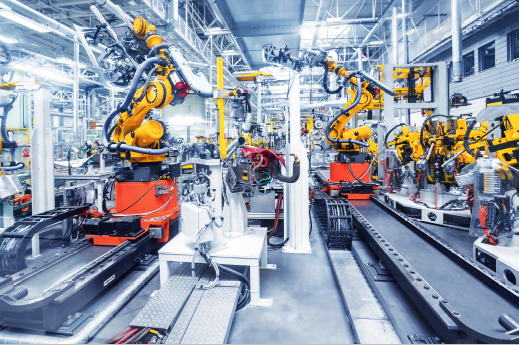The automotive industry is constantly evolving as it seeks innovative materials to enhance vehicle performance, safety, and sustainability. Among these materials, fluoropolymers have emerged as a key player, offering a unique set of properties that make them ideal for a wide range of automotive applications. In this blog, we'll explore how fluoropolymers are driving innovation within the automotive industry.
The Rise of Fluoropolymers in Automotive Applications
Fluoropolymers are a class of synthetic polymers characterized by a high concentration of fluorine atoms. This unique molecular structure exhibits an exceptional resistance to heat, chemicals, and electricity, along with a low coefficient of friction. These properties make fluoropolymers particularly suitable for a variety of demanding automotive applications.
Enhancing Vehicle Performance and Efficiency
One of the primary benefits of fluoropolymers in the automotive industry is their ability to enhance vehicle performance and efficiency. For example, fluoropolymer coatings are used in fuel systems to prevent corrosion and leakage, ensuring more efficient fuel use and reduced emissions. In electric vehicles, fluoropolymers are vital in battery packs and powertrains, providing excellent insulation while withstanding high temperatures and harsh operating conditions.
Improving Safety and Reliability
Safety is paramount in the automotive industry, and fluoropolymers contribute significantly to this aspect. Due to their thermal and chemical stability, they are used in critical components such as brake systems, where they will maintain optimal performance under extreme conditions. Additionally, their exceptional insulation properties make them ideal for electrical systems, reducing the risk of short circuits and enhancing overall vehicle safety.
Lightweighting and Fuel Efficiency
The automotive industry is continually seeking ways to reduce vehicle weight to improve fuel efficiency and reduce carbon emissions. Fluoropolymers, being lightweight yet durable, play a crucial role in this endeavor. They are used in place of heavier materials for various components, contributing to building lighter vehicles without compromising on strength or performance.
Extending Vehicle Life and Durability
Durability is another area where fluoropolymers shine in the automotive industry. Their resistance to wear and tear, coupled with their ability to withstand extreme environmental conditions, helps extend the life of automotive components. This durability translates into longer intervals between maintenance, reduced costs, and a longer lifespan for the entire vehicle.
Sustainability and Environmental Considerations
While fluoropolymers offer numerous benefits, it's also important to consider their environmental impact. The automotive industry is increasingly focusing on sustainable practices, including the use of recyclable materials and reducing harmful emissions. Efforts are being made to develop more environmentally friendly fluoropolymers and to improve recycling processes for these materials.
The Future of Fluoropolymers in Automotive Innovation
Looking ahead, fluoropolymers are poised to play an even more significant role in the automotive industry. As electric vehicles and autonomous technologies continue to advance, the demand for materials that can withstand high electrical stresses and harsh environments will grow. Fluoropolymers are well-positioned to meet these demands, driving innovation in the industry.
Fluoropolymers have become an integral part of the automotive industry, offering a combination of performance, safety, and efficiency that almost unparalleled. As the industry continues to evolve, the innovative use of these materials will undoubtedly lead to more advanced, sustainable, and safer vehicles. With ongoing research and development, the potential applications of fluoropolymers in the automotive sector are bound to expand, paving the way for a new era of automotive innovation.



